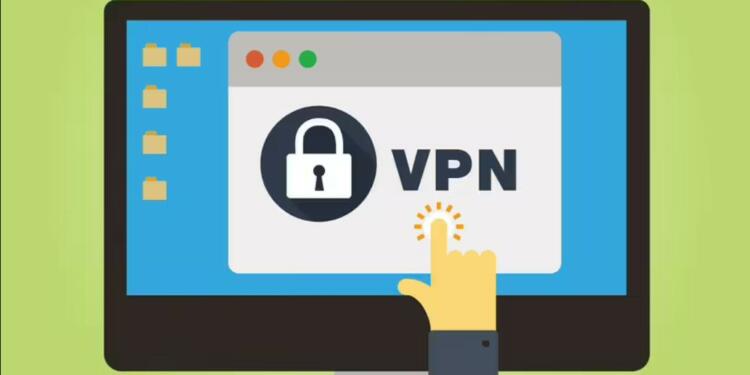Power of VPNs: Today’s fast-paced digital era also comes with uncertainty. Cyberattacks are on the rise, and cybercriminals have taken it further by uncovering different ways of stealing a user’s confidential and private data. The good news is there are ways to tackle this issue and enhance your online experience. The most effective way to counter cyberattacks and improve your online journey is through VPNs.
In this ultimate guide, we’ll discuss why every person needs a VPN and the essential factors you can consider when considering going for a VPN provider. Let’s begin.
How Do VPNs Work?
Virtual Private Networks (VPNs) work by creating a secure, encrypted tunnel between your device and the VPN server. It ensures that your online activities and your identity remain anonymous and safe. Here’s a step-by-step process of how it works:
- When you establish a connection with the VPN, it encrypts your data before leaving your device.
- Before that, you must install a VPN service on your operating system. Once you’ve installed it, you can connect to a server of your desired location.
- The VPN establishes a secure tunnel to the selected server.
- Once the tunnel has been established, all the internet traffic gets routed through the VPN server before reaching its destination. It means that whatever website or service you access online will see the selected server’s IP address instead of your actual IP address.
- When the data arrives at the server, it gets decrypted, and the server forwards your request to the internet.
- The VPN server gets the response from the internet and encrypts the data before sending it back through a secure tunnel to your device.
- When the data arrives, it is decrypted to your device, enabling you to access the requested information or website.
What Are The Different Types of VPNs?
There are different types of VPNs, all of which serve their unique purpose. Here is an overview of the main types of VPNs available:
1) Remote Access VPN
It is the most common type of VPN used by employees and companies working remotely. They allow employees to connect to a private network, regardless of location, securely.
It is useful when trying to access resources on a corporate network from an external location.Remote Access VPNs use SSL/TLS, IPsec and Wireguard VPN Protocol to encrypt the VPN connection.
2) Site-To-Site VPN
Also known as Intranet VPNs, they establish a secure connection between two geographically distant locations. These VPNs are primarily used by businesses to connect their branch offices or to connect their network to a cloud provider. Site-to-Site VPNs use IPsec or MPLS to encrypt and ensure secure data transmission.
3) Client-To-Site VPN
These VPNs allow individual users to connect to a private network from any location securely. It is helpful for remote employees or digital nomads who need to access company resources from another location. Client-To-Site VPNs focus on SSL/TLS for data encryption.
4) Mobile VPN
Mobile VPNs are used for mobile devices like smartphones and tablets. They enable people to securely connect to a network from a different location on their phones. Mobile VPNs implement various technologies such as IPsec, L2TP (Layer 2 Tunneling Protocol), or SSL/TLS.
5) Extranet VPN
Extranet VPNs are similar to Site-To-Site VPNs used to connect to different organizations securely so that people can securely share the company’s data and resources. For example, a company can secure connections with suppliers or partners to collaborate on different projects.
The Benefits of Using VPNs
There are many benefits to using VPNs. Not only do they help enhance your privacy and security and improve your online experience, but they also help you bypass geo-location restrictions and censorship. Let’s go over them in detail:
Privacy & Security
VPNs mask your IP address and encrypt your internet traffic, making it difficult for cybercriminals to decipher your data. VPNs also help protect sensitive information such as passwords, login credentials, and financial details against hackers.
Since VPNs mask your IP address, websites and other online services cannot track you. It adds an extra layer of privacy since your online activities remain anonymous.
Bypassing Geo-location Restrictions & Censorship
VPNs quickly help bypass geo-location restrictions and censorship that ISPs, governments, and other institutions impose. Since users can connect to a different VPN server, they can easily access content blocked in their country but available elsewhere.
VPNs also help you gain access to geo-restricted content—for example, many popular streaming services like Hulu, Netflix, and HBO Max aren’t available in most regions of the world. You can access these streaming services using a VPN without worrying about geo-location restrictions.
Protection From Public WiFi
When connected to a public WiFi network, you risk being exposed to cyber criminals and hackers who can gain unauthorized access to your data. VPNs add an extra layer of security as they encrypt your data, and even if someone tries gaining unauthorized access to your data, all their efforts will be in vain.
Avoiding ISP Throttling
Internet Service Providers can slow down certain types of internet traffic, like video streaming and torrenting. When you’re using a VPN, your internet service provider will be unable to identify which kind of internet traffic you’re using, preventing them from trampling with your connection.
Saving Money
Different countries offer different prices for the same products and services. You can connect to a VPN server from another country and get cheaper deals for the same product or service, such as plane tickets or hotel bookings. Connecting the VPN to a country with lower-priced plane tickets and hotel bookings could save money.
Factors To Consider When Selecting a VPN
Now that you know the power of VPNs and their many benefits, let’s look at the most critical factors to consider when getting into a VPN provider. Many of your choices will depend on your specific needs and requirements. Let’s go over the most critical factors you need to look out for:
- It must have robust encryption protocols AES-256 and secure tunneling protocols like OpenVPN, IKEv2, or L2TP/IPsec. It should also have a strict No-logs policy, as no VPN provider should keep track of your online activities.
- Make sure that your VPN provider has an extensive range of server locations to choose from. The more server locations available, the more the chance for a seamless browsing experience and excellent speed.
- VPNs can slow down your internet connection due to the encryption process and the distance of the servers. It’s essential to carry out a speed test to ensure an excellent performance without any speed issues.
- Ensure that your VPN provider can connect to multiple devices simultaneously. Make sure that you can connect to various devices under the same account.
- The VPN provider should also provide excellent customer support. They should assist you and handle all your queries on time. They should also have different modes of communication, such as phone, email, or live chat, so you can reach them through whichever means you feel comfortable.
Conclusion
VPNs are the exact tool you need to safeguard your online privacy and security while enhancing your online experience and enabling you to bypass geo-location restrictions to enjoy TV shows on all streaming services. You can also avoid censorship and gain access to the content you want without worrying about being in another location. So what are you waiting for? Get your hands on a VPN and see its power unfold.
Also Read: 10 Indian Entrepreneurs whose fall was as steep as their rise

























